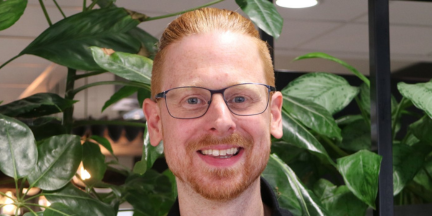Internet de les coses (IoT) sense bateries, una xerrada a càrrec del Dr. Jeroen Famaey
19/05/2023
El Dr. Jeroen Famaey, professor a la Universitat d'Anvers i investigador de l'IMEC oferirà una xerrada el proper 30 de maig a l'Escola.
Amb ocasió de la defensa de la tesi doctoral del professor de l’EETAC Lluís Casals, "Contributions to the Evaluation and Improvement of LoRaWAN” (30 de maig a les 11h, Sala d’Actes de l’EETAC), el Dr. Jeroen Famaey, professor a la Universitat d’Anvers i investigador de l’IMEC visitarà l’escola i oferirà una xerrada als estudiants de l’assignatura MXS (Mobilitat Xarxes i Serveis) del grau en Enginyeria Telemàtica, però que estarà oberta a tothom:
-
Què: “Sustainable IoT: Energy-aware computing and communications on battery-free devices” (xerrada en anglès)
-
Qui: Dr. Jeroen Famaey
-
Quan: dimarts 30 de maig a les 17h
-
On: sala C4-128B de l’EETAC (CBL)
Més detalls sobre aquesta xerrada i sobre el seu ponent:
Sustainable IoT: Energy-aware computing and communications on battery-free devices
Abstract: In the Internet of Things, billions of battery-powered devices are connected to the Internet. However, batteries are expensive, bulky, cause pollution and degrade after a few years. Replacing and disposing of billions of dead batteries every year is costly and unsustainable. As an alternative, battery-free devices are envisioned, that harvest energy from ambient sources in the environment and store it in a small capacitor. This results in high variability in terms of available energy, causing frequent power failures and intermittency. In this talk, I discuss novel methods for energy harvesting on battery-free devices, as well as how to enable effective computing and communications in face of intermittent energy availability, by way of energy-aware joint computing and communications strategies. Thus allowing battery-free devices to effectively participate in the Internet of Things.
Bio: Jeroen Famaey is a research professor associated with the University of Antwerp and imec, Belgium. He received his M.Sc. degree in Computer Science from Ghent University, Belgium in 2007 and a Ph.D. in Computer Science Engineering from the same university in 2012. He currently leads the research on Connected Systems at the IDLab research group. His own research focuses on the modelling and optimization of wireless networks and distributed systems. His specific interests include joint communications and sensing for Extended Reality applications, and optimization of low-power energy harvesting systems and networks. His research has resulted in over 170 peer-reviewed journal and conference papers, as well as 8 granted patents. He has received 6 best paper awards, and was listed among the top 2% cited scientists worldwide by Stanford University in 2022.

Comparteix: